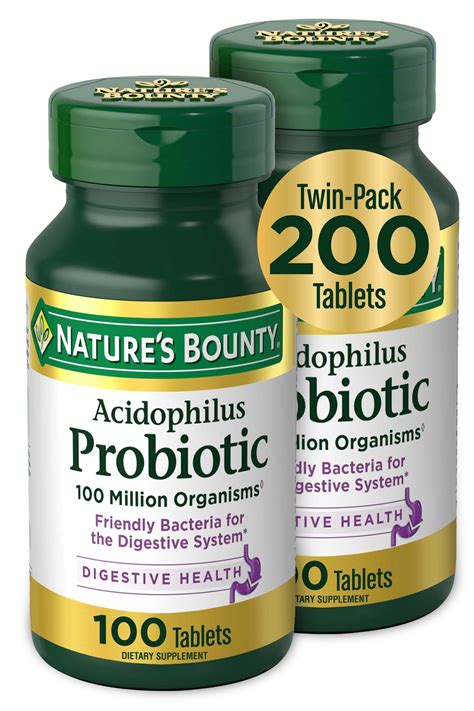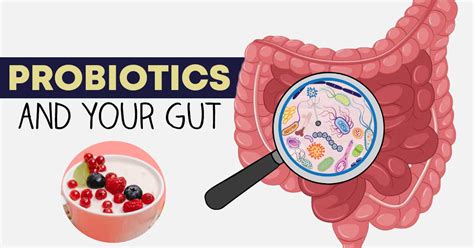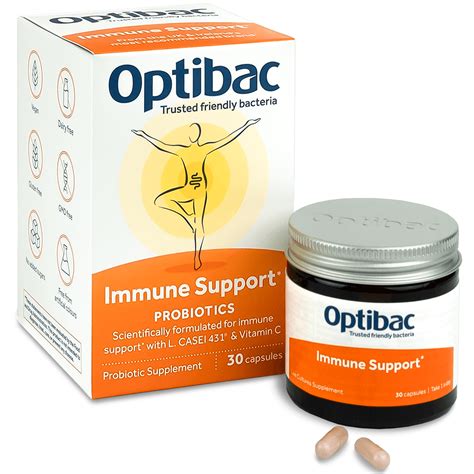How To Spot Fake Probiotics: A Comprehensive Guide
Are There Any Ways to Spot Fake Probiotics?
The world of probiotics is becoming increasingly crowded, with a multitude of brands and products vying for your attention. But with the surge in popularity comes a concern: how can we be sure that the probiotics we’re buying are actually what they claim to be? The truth is, there are a number of ways to spot fake probiotics and protect yourself from potentially ineffective or even harmful products.
A fake probiotic is a product that doesn’t contain the strains of bacteria it claims to have, or it contains fewer live bacteria than advertised. This can be a real problem, as probiotics are designed to deliver a specific range of beneficial bacteria to your gut. If you’re taking a fake probiotic, you might not be getting the health benefits you’re looking for. Moreover, certain fake probiotics might even contain harmful bacteria or substances, potentially causing adverse effects on your health.
So, how do you tell the real from the fake? Let’s explore some key factors to consider when choosing a probiotic product.
Look for a Reputable Brand
Start by looking for a reputable brand with a good track record. Do some research on the company behind the product. Are they known for their commitment to quality and transparency? Do they have third-party certifications or testing results to back up their claims?
A reputable brand will be transparent about their manufacturing processes, ingredient sourcing, and testing procedures. They will also likely provide information about the specific strains of bacteria in their products, as well as the number of colony-forming units (CFUs) per serving. Look for brands that use reputable third-party labs for testing, such as NSF International or USP.
Check for the Strains and CFUs
Not all probiotics are created equal. Different strains of bacteria have different health benefits. For example, Lactobacillus acidophilus is commonly used to support digestive health, while Bifidobacterium longum is known for its immune-boosting properties. The product label should clearly list the strains of bacteria present and their respective CFUs (colony-forming units).
The CFU count represents the number of live bacteria in a single serving. Look for products with a high CFU count (typically millions per serving) and make sure that the count is appropriate for the intended use of the probiotic.
A good rule of thumb is to choose products with at least 10 billion CFUs per serving, particularly if you are looking to support digestive health or gut health.
Examine the Packaging and Storage Instructions
Pay attention to the packaging and storage instructions. Probiotics are sensitive to heat, light, and moisture. Look for products that are packaged in airtight containers and stored properly to maintain their potency.
The storage instructions should clearly indicate the appropriate temperature and conditions for storing the product. If the packaging is damaged or the storage instructions are unclear, it might be a sign of a low-quality or potentially compromised product.
Additionally, check for the expiration date. Probiotics have a limited shelf life, and you want to ensure that the product you are purchasing is still fresh and potent. Avoid purchasing products that are close to or past their expiration date.
Remember, choosing the right probiotic can significantly impact your health. By carefully scrutinizing the product label, researching the brand, and understanding the importance of storage instructions, you can increase your chances of purchasing a genuine and effective probiotic product. Always consult with a healthcare professional to determine the best probiotic for your individual needs.

How Can I Tell If A Probiotic Is Fake?
Differentiating between a genuine probiotic and a fake one can be a challenge. However, several key factors can help you identify a product that might not be authentic.
Lack of Transparency
A major red flag is a lack of transparency from the manufacturer. If a company is reluctant to disclose information about their ingredients, manufacturing processes, or testing procedures, it could be a sign that they have something to hide. Reputable brands will be open and forthcoming about their products and their commitment to quality.
Unrealistic Claims
Be wary of products that make exaggerated or unrealistic claims about their health benefits. Probiotics are helpful for supporting digestive health and boosting the immune system, but they are not a cure-all for every ailment. Products that promise miraculous results are likely to be misleading or even harmful.
Unusually Low Prices
If a probiotic product is significantly cheaper than comparable products, it might be a sign that it is of lower quality or potentially fake. High-quality probiotics require rigorous testing and quality control, which can contribute to a higher price. However, don’t solely base your decision on price. Consider other factors like the brand’s reputation, the strains of bacteria used, and the CFU count.
No Third-Party Certification
The presence of third-party certifications, such as those from NSF International or USP, can help validate a product’s authenticity and quality. These organizations conduct rigorous testing and verification to ensure that products meet certain standards. Look for products that have earned these certifications as a sign of quality and reliability.
Missing or Incomplete Information
Pay attention to the product label. A genuine probiotic will clearly list the specific strains of bacteria, their respective CFU counts, and any other relevant ingredients. If the label is missing important information or if the information is unclear or incomplete, it might be a red flag.
Remember, your gut health is crucial to overall well-being. By being mindful of these factors and doing your research, you can increase your chances of choosing a genuine and effective probiotic product.

Is It Safe to Take Probiotics?
Generally speaking, probiotics are considered safe for most people. However, there are some potential side effects to be aware of. These side effects are typically mild and temporary, and they usually occur when you first start taking probiotics or when you take a very high dose.
Common side effects of probiotics include:
- Gas and bloating
- Diarrhea
- Stomach cramps
- Headache
If you experience any of these side effects, you can try reducing the dosage or stopping taking probiotics for a few days. You should also consult with your doctor if you have any concerns or if the side effects are severe or persistent.
It’s also important to note that probiotics are not suitable for everyone. If you have a weakened immune system, a compromised gut, or are undergoing medical treatment, you should consult with your doctor before taking probiotics.
Probiotics are generally safe, but it’s important to choose a reputable brand and be aware of potential side effects. Always talk to your doctor if you have any concerns about your health or if you are considering taking probiotics.
How Do Probiotics Work?
Probiotics are live bacteria that are beneficial to your gut health. They are often referred to as «good» bacteria because they help to balance the bacteria in your gut, which can support various aspects of your overall well-being.
Here’s a breakdown of how probiotics work:
1. Colonizing the Gut
Probiotics work by colonizing your gut with beneficial bacteria. These bacteria compete with harmful bacteria for space and resources, helping to keep the balance in your gut microbiome in check.
2. Producing Helpful Compounds
Beneficial bacteria in probiotics produce various compounds that contribute to gut health, including:
- Short-chain fatty acids (SCFAs): These acids provide energy for your gut cells and have anti-inflammatory properties.
- Lactic acid: Lactic acid helps maintain a healthy pH balance in your gut, which can inhibit the growth of harmful bacteria.
- Bacteriocins: These antimicrobial substances produced by certain bacteria can help to eliminate harmful bacteria in your gut.
3. Supporting Immune Function
A healthy gut microbiome plays a vital role in immune function. Probiotics can help to strengthen the immune system by stimulating the production of antibodies and immune cells.
4. Regulating Digestion
Probiotics can help to improve digestion by producing enzymes that aid in the breakdown of food. They can also help to regulate bowel movements and reduce symptoms of constipation and diarrhea.
Overall, probiotics work by restoring and maintaining the balance of bacteria in your gut, leading to improved gut health and potentially beneficial effects on overall well-being.

Can You Test A Probiotic At Home?
Unfortunately, there is no reliable way to test a probiotic at home. Testing the live bacteria in a probiotic requires specialized laboratory equipment and expertise that is not readily available for home use.
If you are concerned about the authenticity of a probiotic product, the best course of action is to contact the manufacturer or a reputable independent testing laboratory to request information about their testing procedures and results.
You can also check for third-party certifications, such as those from NSF International or USP, which indicate that the product has been tested and verified to meet certain quality standards.
Remember, relying on home tests for determining the quality or authenticity of probiotics is not recommended. It’s always best to rely on reputable brands and seek information from trusted sources.
What Are the Benefits of Taking Probiotics?
Probiotics have gained significant popularity in recent years due to their potential health benefits. While research is still ongoing, numerous studies have suggested that probiotics can play a positive role in supporting various aspects of health and well-being.
1. Digestive Health
Probiotics are widely known for their ability to promote digestive health. They can help to alleviate symptoms of common digestive issues, such as:
- Constipation
- Diarrhea
- Irritable bowel syndrome (IBS)
- Inflammatory bowel disease (IBD)
Probiotics work by restoring the balance of bacteria in the gut, which can help to regulate digestion and reduce inflammation.
2. Immune Function
Probiotics can also contribute to a robust immune system. They can help to stimulate the production of antibodies and immune cells, which can enhance the body’s ability to fight off infections and diseases.
Some studies have shown that probiotics may be beneficial in reducing the frequency and severity of colds, flu, and other infections.
3. Mental Health
Emerging research suggests that probiotics may play a role in supporting mental health. The gut-brain connection is a complex and fascinating area of study, and it appears that the bacteria in your gut can communicate with your brain and influence your mood, emotions, and cognitive function.
Some studies have indicated that probiotics may be helpful for managing symptoms of anxiety, depression, and stress.
4. Skin Health
Probiotics are also believed to have benefits for skin health. They can help to reduce inflammation, improve skin barrier function, and protect against acne and other skin conditions.
Some studies have shown that probiotics may be beneficial for treating eczema and other skin disorders.
5. Other Potential Benefits
Probiotics have also been studied for their potential benefits in areas such as:
- Weight management
- Cardiovascular health
- Allergy prevention
- Cancer prevention
However, more research is needed to fully understand the long-term effects of probiotics on these conditions.
Overall, probiotics offer a range of potential health benefits, particularly for digestive health and immune function. However, it’s crucial to choose high-quality products and consult with your doctor before taking probiotics, especially if you have any underlying health conditions.
How Long Does It Take for Probiotics to Work?
The time it takes for probiotics to show effects can vary depending on the individual, the specific probiotic strain, and the condition being treated. In general, you may start to notice improvements in your gut health and other areas within a few weeks of taking probiotics regularly.
However, for some conditions, such as IBS or IBD, it may take several months or even longer to see significant benefits. It’s also important to note that probiotics are not a quick fix and should be used in conjunction with other healthy lifestyle practices, such as a balanced diet and regular exercise.
Consistency is key when it comes to probiotics. It’s best to take probiotics daily for optimal results, even after you start to feel better. This helps to maintain a healthy balance of bacteria in your gut and reap the ongoing benefits of probiotics.
If you’re not sure how long to take probiotics or if you’re not seeing any results, talk to your doctor or a registered dietitian.
Are Probiotics Safe for Children?
Probiotics are generally considered safe for children, but it’s essential to talk to your child’s pediatrician before giving them probiotics.
The pediatrician can help determine the appropriate probiotic strain, dosage, and form (liquid, powder, capsules) for your child’s age and health condition. They can also address any concerns you may have about potential side effects or interactions with other medications.
Here are some key considerations for using probiotics in children:
- Age: Some probiotics may not be suitable for infants or young children.
- Health conditions: Probiotics may not be appropriate for children with certain health conditions, such as weakened immune systems or allergies.
- Dosage: The appropriate dosage for children will vary depending on their age and weight.
- Form: Probiotics are available in various forms, such as liquid, powder, and capsules. Choose a form that is easy for your child to take.
Remember, always talk to your child’s pediatrician before giving them any new supplements, including probiotics.
Are Probiotics Safe for Pregnant Women?
The use of probiotics during pregnancy is generally considered safe, but it’s important to talk to your doctor or midwife before taking any probiotic supplements. They can advise you on the appropriate probiotic strain, dosage, and form for your individual needs and ensure that it is safe for both you and your baby.
Some studies have suggested that probiotics may offer certain benefits during pregnancy, such as:
- Reducing the risk of pre-term birth
- Supporting vaginal health and reducing the risk of yeast infections
- Improving gut health and reducing constipation
- Boosting the immune system
However, more research is needed to fully understand the potential risks and benefits of probiotics during pregnancy. It’s always best to err on the side of caution and consult with your healthcare provider before taking any supplements during pregnancy.
If you are breastfeeding, talk to your doctor or lactation consultant about the use of probiotics. Some probiotics may be safe for breastfeeding mothers, but it’s important to choose a product specifically designed for breastfeeding women and follow your doctor’s recommendations.
What Are Some of the Most Popular Probiotic Strains?
There are many different strains of probiotics available, each with its own unique set of benefits. Here are some of the most popular and well-researched probiotic strains:
1. Lactobacillus acidophilus
Lactobacillus acidophilus is one of the most common probiotic strains. It’s often used to support digestive health, reduce symptoms of diarrhea, and maintain a healthy balance of bacteria in the gut. It is also found in many dairy products.
2. Bifidobacterium bifidum
Bifidobacterium bifidum is another popular probiotic strain. It’s known for its ability to support immune function, improve digestive health, and potentially reduce the risk of allergies.
3. Lactobacillus casei
Lactobacillus casei is a versatile probiotic strain that has been shown to support immune function, improve gut health, and potentially reduce the risk of colds and flu.
4. Lactobacillus rhamnosus
Lactobacillus rhamnosus is a robust probiotic strain that can survive in the harsh conditions of the stomach and intestines. It’s often used to support digestive health, reduce symptoms of diarrhea, and potentially improve immune function.
5. Saccharomyces boulardii
Saccharomyces boulardii is a yeast that acts as a probiotic. It’s known for its ability to reduce diarrhea, particularly antibiotic-associated diarrhea, and may also help to support immune function.
The specific probiotic strain you choose will depend on your individual needs and goals. Consult with your doctor or a registered dietitian to determine the best probiotic strains for you.
Do Probiotics Interact With Medications?
Probiotics can potentially interact with certain medications. It’s important to talk to your doctor before taking probiotics, especially if you are taking any medications, to avoid potential interactions.
Here are some common medications that may interact with probiotics:
- Antibiotics: Probiotics can potentially interfere with the effectiveness of antibiotics by reducing the concentration of the antibiotic in your gut. However, probiotics may also be beneficial for reducing the risk of antibiotic-associated diarrhea.
- Immunosuppressants: If you are taking immunosuppressants, such as those used for transplant patients or people with autoimmune diseases, you should talk to your doctor before taking probiotics. Probiotics may increase the risk of infection in people with weakened immune systems.
- Blood thinners: Some probiotics may interact with blood thinners, such as warfarin, by increasing the risk of bleeding. It’s important to talk to your doctor about the potential for interactions.
- Other medications: There may be other medications that could interact with probiotics. It’s always best to consult with your doctor before taking any new supplements, including probiotics.
If you are taking any medications, it’s essential to talk to your doctor before taking probiotics. They can advise you on the potential risks and benefits and ensure that probiotics are safe for you.
Conclusion
Probiotics have become increasingly popular due to their potential health benefits, but it’s crucial to be discerning and choose high-quality products. By understanding the key factors to consider, such as reputable brands, clear labeling, and proper storage, you can increase your chances of selecting effective and safe probiotics.
Remember, probiotics are not a magic bullet, and their effects can vary depending on the individual. Consult with your doctor or a registered dietitian to determine the best probiotic strains and dosage for your individual needs. By being informed and making responsible choices, you can harness the potential benefits of probiotics for optimal gut health and overall well-being.
FAQ
What are the benefits of probiotics?
Probiotics offer a range of potential benefits, particularly for digestive health and immune function. They can help to alleviate symptoms of common digestive issues, such as constipation, diarrhea, and irritable bowel syndrome (IBS). Probiotics may also contribute to a robust immune system, potentially reducing the frequency and severity of colds, flu, and other infections.
Are probiotics safe for everyone?
Probiotics are generally considered safe for most people, but they may not be suitable for everyone. If you have a weakened immune system, a compromised gut, or are undergoing medical treatment, you should consult with your doctor before taking probiotics.
How long does it take for probiotics to work?
The time it takes for probiotics to show effects can vary depending on the individual, the specific probiotic strain, and the condition being treated. In general, you may start to notice improvements in your gut health and other areas within a few weeks of taking probiotics regularly. However, for some conditions, such as IBS or IBD, it may take several months or even longer to see significant benefits.
What are some of the most popular probiotic strains?
Some of the most popular and well-researched probiotic strains include Lactobacillus acidophilus, Bifidobacterium bifidum, Lactobacillus casei, Lactobacillus rhamnosus, and Saccharomyces boulardii. The specific probiotic strain you choose will depend on your individual needs and goals. Consult with your doctor or a registered dietitian to determine the best probiotic strains for you.
Can you test a probiotic at home?
Unfortunately, there is no reliable way to test a probiotic at home. Testing the live bacteria in a probiotic requires specialized laboratory equipment and expertise that is not readily available for home use.
Do probiotics interact with medications?
Probiotics can potentially interact with certain medications. It’s important to talk to your doctor before taking probiotics, especially if you are taking any medications, to avoid potential interactions.
What are some signs of a fake probiotic?
Signs of a fake probiotic can include a lack of transparency from the manufacturer, unrealistic claims, unusually low prices, no third-party certification, and missing or incomplete information on the product label.
Probiotic Summary Table
| Feature | Explanation |
|---|---|
| Reputable Brand | Choose probiotics from brands with a proven track record, transparent manufacturing processes, and third-party certifications. |
| Strain & CFUs | Identify the specific strains of bacteria present and the number of colony-forming units (CFUs) per serving. Aim for at least 10 billion CFUs per serving. |
| Packaging & Storage | Look for airtight packaging and follow storage instructions carefully to maintain potency. Check the expiration date. |
| Transparency | Reputable brands will be open about their ingredients, manufacturing processes, and testing procedures. |
| Unrealistic Claims | Be wary of products that make exaggerated or unrealistic claims about their health benefits. |
| Price | Consider the price relative to comparable products, but don’t solely base your decision on price. |
| Third-Party Certification | Look for products with certifications from organizations like NSF International or USP. |
| Information | Ensure the label clearly lists strains, CFUs, and other relevant ingredients. |
